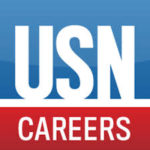 Your quest for knowledge can give you a boost in your career.
Your quest for knowledge can give you a boost in your career.
As seen in U.S. News | March 13, 2017
It is ironic that when you are young, you think you know everything. As you get older, and presumably wiser, you quickly realize you don’t know as much as you once thought you did. Research shows that a common thread among leading CEOs, entrepreneurs and world leaders is their commitment to learning. On an obvious level, it stands to reason that pursuit of knowledge helps you to know more things. But what is often overlooked is that being open to new information is a learned skill (and it can be humbling). When we throw ourselves off-kilter, we must use many mental and emotional “muscles” to get back to an equilibrium. Repeating this process often increases our mental flexibility and agility, and strengthens our mental “core.” These aspects of lifelong learning can be significant to surging forward professionally while your peers may be stagnant. If you are looking to advance your career, here are some ways to boost your knowledge.
Digital skills development. Technology is fundamental in every profession to communicate, increase efficiency, track information, account for revenue, measure activity and more. When properly leveraged, digital tools can enable you to outperform your competitors or peers. However, these tools evolve constantly. Many workers learn things once and leave the ongoing knowledge to their younger peers – but this is a path to stagnation in every profession. Take the time to master the digital tools used in your industry.
Start with learning your communication tools – Outlook or Google products, most likely. There are many online and free “help” resources embedded in these products that enable you to move beyond knowing just enough to get by. There are shortcut keys to help you quickly create emails and calendar events or toggle between screens. Additionally, there are many organizational, project management and collaboration tools that aid in minimizing unnecessary duplication of efforts and keep you on track. Mastery of digital communication not only saves you precious time, but it conveys a more sophisticated professional image in any industry.
Challenge yourself to learn more about the software you use to create documents, such as Word, Excel and PowerPoint. You can also master file-sharing products like OneDrive, Dropbox and Box as well as video and web-based conferencing with products like GoToMeeting, RingCentral and Cisco WebEx. These collaboration tools enable you to connect with peers and customers in the most efficient and tech-savvy way. These products are designed to be accessible to a wide range of users and include help functions, user guides, chat groups and even videos. It just requires taking the time to access the information. With the average employee at a basic level, even a little enhanced knowledge can go a long way.
Soft skills development. Development of your EQ (emotional intelligence or soft skills) has never been more important and easier. According to a Forbes.com story, “… people with a high degree of emotional intelligence make more money – an average of $29,000 more per year than people with a low degree of emotional intelligence.” Start by determining what things you would like to improve – such as collaboration on a team, being a leader, negotiating, etc. Once you have your goal, start online. Seek out TED Talks, YouTube, LinkedIn Learning or Khan Academy videos as well as blogs written by respected professionals to start the process. Learning directly from some of the world’s leading experts gives you a great boost. You can then supplement that knowledge with more time- and financial-consuming activities like reading books, attending a class or joining a group to foster your development. For example, Toastmasters is an ideal group to join if you feel your public speaking and communication skills are holding you back. Large companies many even have the resources in house – but anyone with internet access and a library card can take advantage of these opportunities.
Industry knowledge. Again, never has it been easier to stay connected to information and trends impacting your field of work. For a low level of commitment, select a couple of blogs, influencers or industry-specific resources to follow online or listen to in podcast format. Make it a habit to read, watch or listen about your industry at least one hour a month. Just doing that is likely to put you ahead of your peers. If you want to take it further, join an industry association or attend a conference. This requires shaking up your routine a little, but the 12 to 24 hours that you may commit over the course of the year at events has huge returns. You will learn more, network with people who can add value to your career and have interesting talking points to share at your next work meeting or review. Most likely you will perform better in your current job, as well.
Grade school teachers are right in their quest to build lifelong learners. While any of us can access information, actually learning and integrating new information is a skill, and it pays off big professionally. Results are possible with the addition of even one new learning habit – like listening to a podcast, reading a blog or taking 10 minutes each week to get better at using your digital tools. Take the time to enhance yourself professionally with a little more knowledge every week. It’s a great defense against an ever-changing professional landscape.
